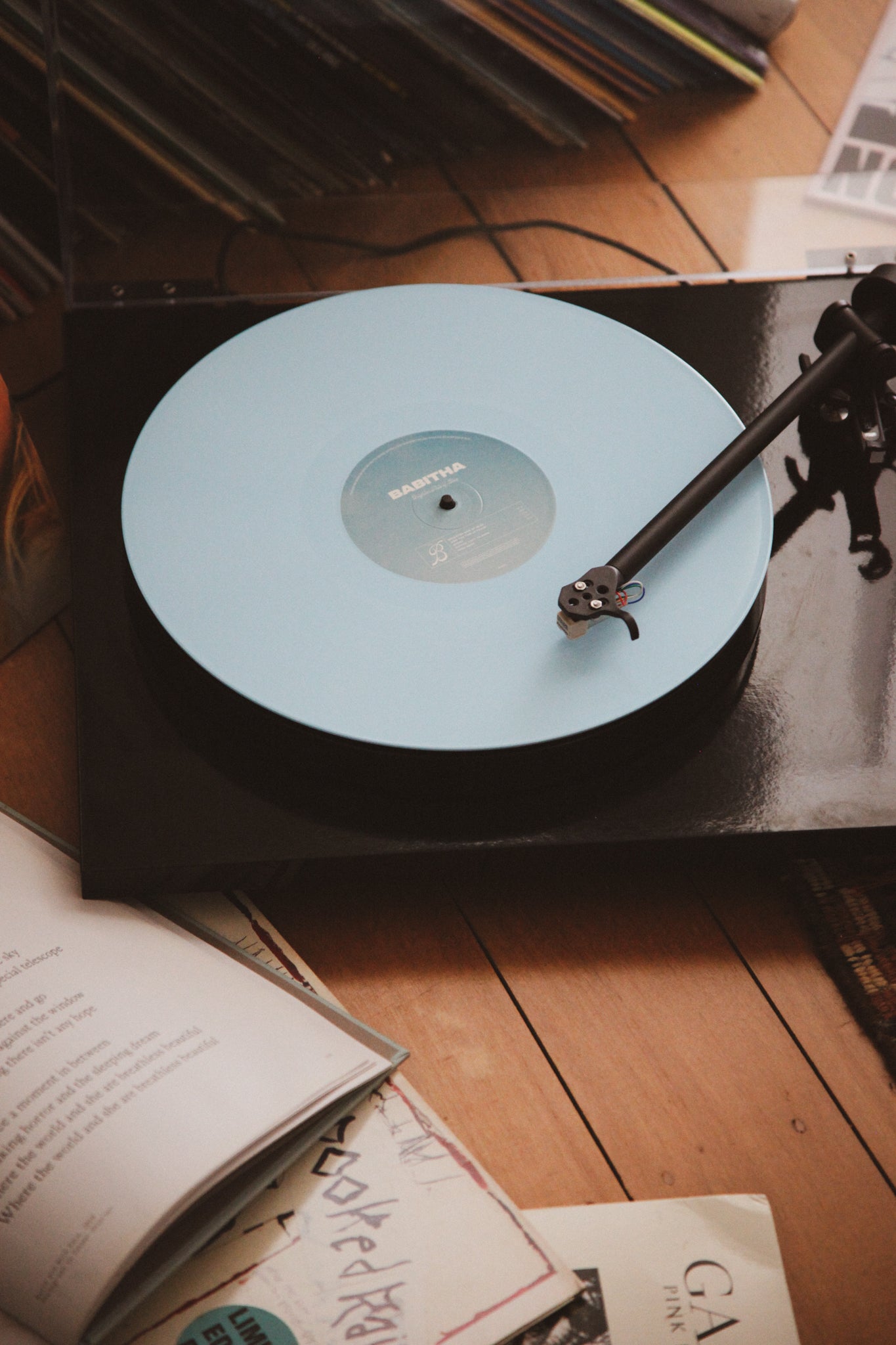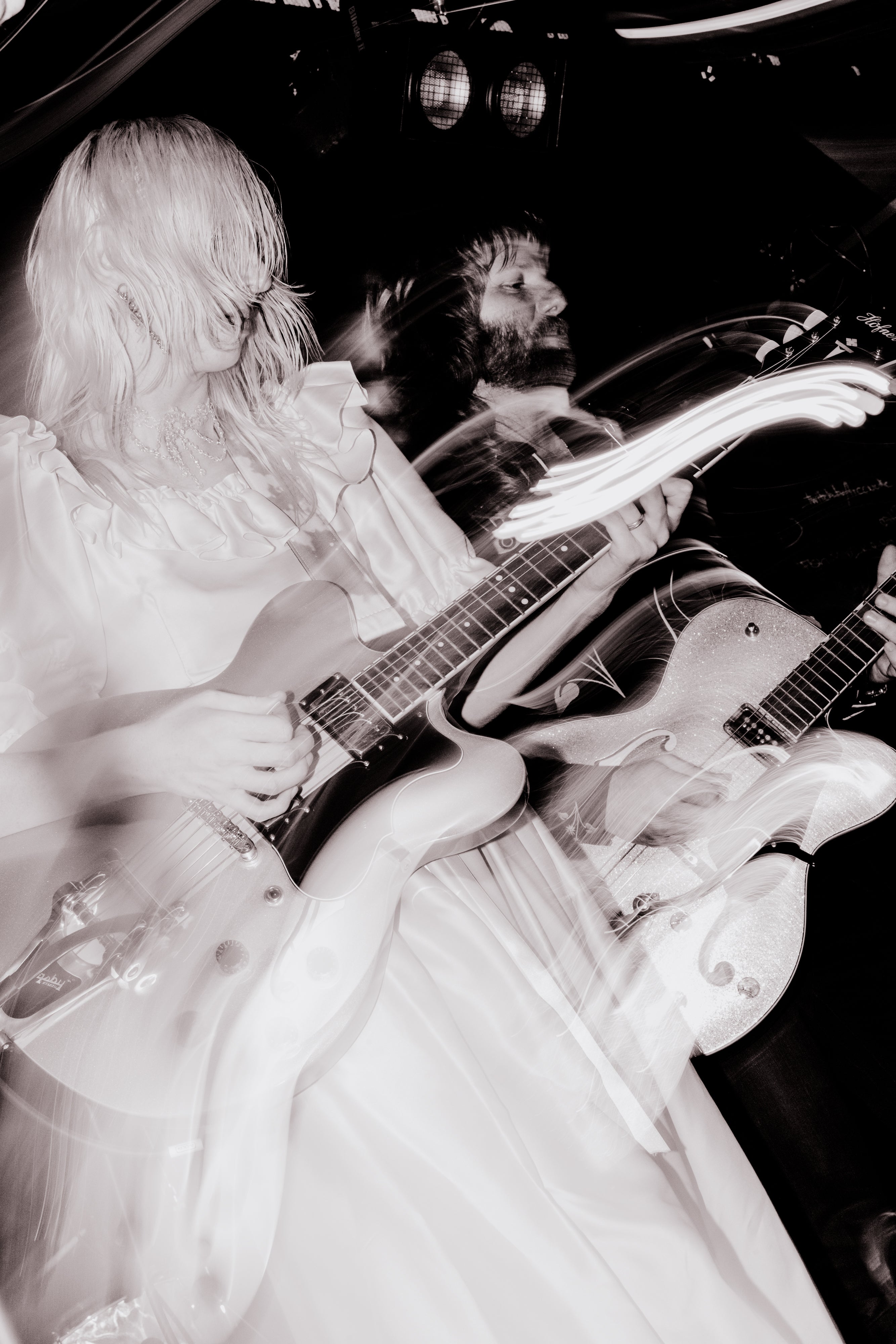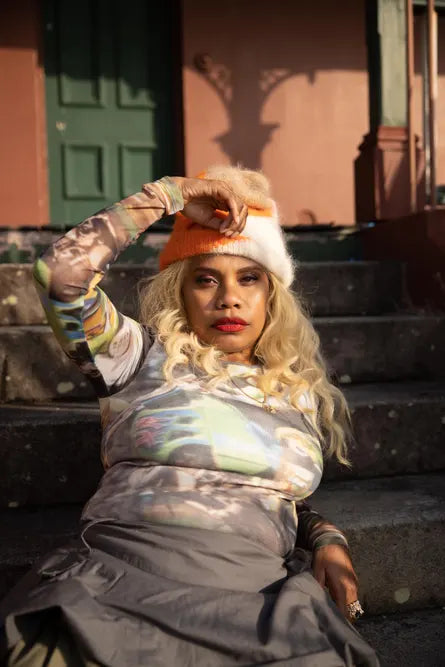Country music has always been a tough sell in Australia. While in the States, college students are just as likely to listen to a Zach Bryan tear-jerker as they are to emo rap, here, the genre is almost exclusively enjoyed by people over 40 who live in rural areas. I can say this because I grew up in a rural area, and the CD case my mum still keeps in her car is full of Shania Twain, Lee Kernaghan, Willie Nelson and, yes, Keith Urban. Because apples don’t fall far from trees, I am a country music fan. It’s the one genre my boyfriend and I can’t agree on. But we can agree on Babitha.
Babitha (rhymes with Tabitha) is the solo project of a musician named Imogen Grist. She grew up in the town of Kerrs Creek in Western New South Wales, and played guitar from a young age. Neil Young, Dolly Parton, ABBA and Fleetwood Mac were on the stereo at home, which explains the immense vulnerability and cosmic sparkle that construes the ethereal, alt-country music Babitha is making.
She arrived in 2020 with the release of ‘Get Away’, a meandering single that wouldn’t sound out of place on the score of a spaghetti western. The protagonist of the song yearns to escape the city for more wide open spaces—a classic country narrative—but in Babitha’s hands, it feels made for an audience of young people who, in the throes of the Covid lockdowns, really did want to get the hell out of Dodge. Stuck inside, the song was a recipe for escapism, conjuring images of driving through the country, windows all the way down.
Earnest one line, wry the next, it’s Babitha’s songwriting that brings the golden glow of her music into the present day. While her male American contemporaries are singing about drinking Jack Daniels in the back of pick up trucks, Babitha is painting evocative pictures of modern lovers and, in one of my personal favourite lines, a psychologist who won’t return her call. This particular line appears on ‘Happy Person’, a track from her debut album, Brighter Side of Blue—the very album this essay is attached to.
Following a 6-track EP that gave fans a small fix in 2021, Brighter Side of Blue landed at the beginning of 2023. Remarkable in its variety yet impressive in the way it ties different ideas together, it swoops from tracks like ‘Only Fair’, which opens with a menacing guitar progression, to stripped-back folk songs like ‘Ants’. Babitha’s vibrato on the latter is otherworldly—as she observes the beauty of small wonders, like ants crawling in a perfect line, her voice floats through the air like a feather in the breeze.
Grist has said that Babitha is like an alter ego—the archetypical ‘other woman’, such as the red-haired beauty Parton sings about in ‘Jolene’. When you listen to the album from this perspective, songs like ‘Night and Day’ take on a different kind of emphasis. Addressing a mystery woman named ‘Anna’ who can be heard crying from upstairs, Babitha decides to offer up some unsolicited advice:
“Girl, I hear you pacing back and forth again, why don’t you get some sleep you know it’s 3 a.m.,” she sings. “Don’t give in so easy, don’t give up the fight. We all make bad decisions on a Friday night.”
I was drawn first to Babitha’s sound. But the fashion universe she’s created around the music is just as enchanting. I was drawn first to Babitha’s sound. But the fashion universe she’s created around the music is just as enchanting. She performs in vintage ball gowns and tailored suits, switching between masculine and hyper-feminine aesthetics, while her feathery, free-spirited layers are cut straight from the seventies. The art direction of her visuals and music videos also form an important part of the Babitha project; running through the Australian bush in a gothic white wedding dress, Babitha’s video for ‘Only Fair’ is a work of contemporary art.
The art direction of her visuals and music videos also form an important part of the Babitha project; running through the Australian bush in a gothic white wedding dress, Babitha’s video for ‘Only Fair’ is a work of contemporary art.
At heart, Babitha is a country musician. But her stylised, avant-garde take is bringing the genre to new audiences—fans of Caitlin Harnett & The Pony Boys, Julia Jacklin and, further afield, artists like Weyes Blood and Angel Olsen will gravitate towards her sinuous melodies and contemporary preoccupations like nail-biting, wallowing in heartbreak and emerging from a period of depression to once more experience the glow of optimism. True to its name, the album is about looking to the brighter side of darkness; to the brighter side of blue.
As far as I’m concerned, Babitha is best experienced anywhere. But putting this record on as you get ready to go out and make bad decisions on a Friday night, à la our friend Anna in ‘Night and Day’, comes highly recommended.



